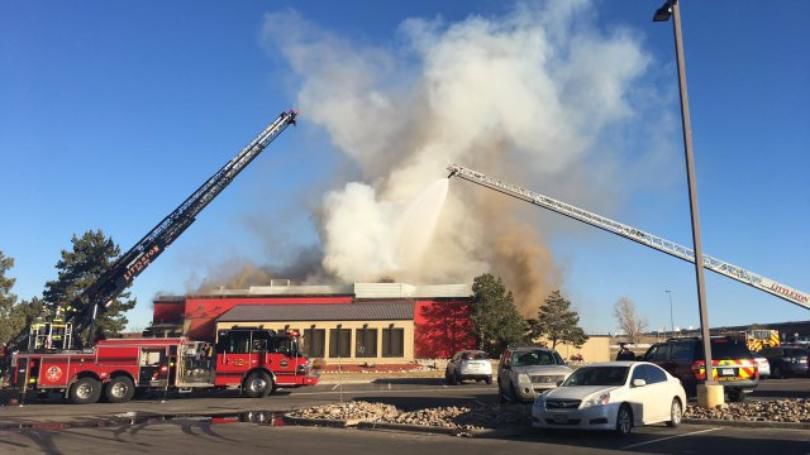Colorado lawmakers reintroducing ‘red flag’ gun bill

Colorado lawmakers announced Thursday they will try again to pass a “red flag” bill to take guns out of the hands of those deemed mentally unstable.
The announcement came on the one-year anniversary of the killing of 17 people at Marjory Stoneman Douglas High School in Parkland, Florida.
While the bill has yet to be formally introduced in the House, supporters indicated the 2019 red flag bill will be dramatically different than the version rejected in the Republican-controlled state Senate last May.
The 2018 measure was spurred by the ambush slaying of Douglas County Deputy Zachary Parrish III on Dec. 31, 2017. He was shot dead by a veteran who had been diagnosed with PTSD and who had been determined by officers on the scene as having mental health issues. The man died in a shootout with police.
As described by lawmakers, this year’s “Extreme Risk Protection Order” bill would allow law enforcement officers to remove guns and ammunition from a person deemed a risk to themselves or to others.
Under the measure, once law enforcement removes guns from someone, a judge would be required to hold a hearing within 14 days to determine if the respondent is mentally stable.
In contrast to last year’s measure, the respondent would be provided with legal counsel. But if the person is deemed a risk to themselves or others, law enforcement could hold the weapons for up to 364 days, double the number of days in the 2018 bill.
The bill’s sponsors are House Majority Leader Alec Garnett, D-Denver, who co-sponsored the 2018 measure, and newly elected Rep. Tom Sullivan, D-Centennial, whose son, Alex, died in the Aurora Theater shooting in 2012.
“This is why I’m here,” Sullivan said at Thursday’s news conference, “to make sure what happened to my family doesn’t happen again.”
A year ago, five states had red flag laws, but in the wake of the Florida shooting, eight more states have passed those laws. Colorado should be the next state to adopt that law, supporters said.
Douglas County Sheriff Tony Spurlock, Parrish’s boss, said the bill is about saving lives, including those who are in danger of suicide.
Spurlock said the bill’s changes from 2018 came at the request of the state’s judicial department, which asked for a longer time period to accommodate the courts. The longer time period to retain weapons is at the request of mental health professionals, to give more time to help those who need mental health treatment. Supporters also noted that most states with red flag laws have those longer time periods.
The introduction won praise from Giffords, the anti-gun violence organization founded by former U.S. Rep. Gabby Giffords and her husband, Capt. Mark Kelly. In a statement, Nico Bocour, the organization’s state legislative director, said “Colorado leaders understand it takes bold action by the legislature to protect communities from our country’s growing gun violence epidemic. The time to act is now. By creating a process to establish an extreme risk protection order, law enforcement will have the ability to prevent tragedies before they occur.”
Noticeable in their absence this year in the bill’s rollout: Republicans.
Last year, GOP Assistant Minority Leader Cole Wist of Centennial took heat for his caucus and from Republicans statewide for backing the bill, and it made him a target of Rocky Mountain Gun Owners (RMGO), who called him a traitor during the 2018 election season.
Garnett pointed to a poll released Wednesday by Magellan Strategies that showed that 60 percent of Republicans support a red flag bill. “That seems like the bipartisan support this bill needs,” Garnett said.
RMGO was present at Thursday’s news conference, issuing a statement that said the bill will strip gun owners of their legal property without due process.
RMGO did not address the bill’s language on the 14-day court hearing or that the bill provides the respondent with an attorney for those hearings, key provisions of due process.
RMGO Executive Director Dudley Brown also blasted Democrats for holding the news conference on the anniversary of the Parkland shooting. “This bill will do nothing to prevent another Columbine, Aurora or Parkland,” Brown said in the statement.
House Minority Leader Patrick Neville of Castle Rock echoed Brown’s concerns about due process. “…I am extremely concerned about the lack of due process in this bill. This is an even more draconian version of legislation than what we saw last year. In this version of the bill, innocent until proven guilty no longer exists. The burden of proof is on you to prove your innocence.”
Also missing from Thursday’s news conference: Senate President Leroy Garcia of Pueblo, who has been a reliable voter in favor of repealing the most controversial bill from the 2013 session — to outlaw ammunition magazines of 15 rounds or greater.
In a statement released Thursday, Garcia didn’t exactly offer full-throated support for the red flag bill, which he didn’t mention by name in the statement.
“I recognize this conversation is difficult, but it is one we need to have and an issue we need to address,” he said. “We must protect the most vulnerable while respecting law-abiding citizens. I look forward to continued conversations with Majority Leader Garnett and Coloradans to ensure that we find the best policy for Colorado.”
In the Senate, the measure is sponsored by Senate President Pro tem Lois Court, D-Denver, and Sen. Brittany Pettersen, D-Lakewood.
Court told Colorado Politics she believes Garcia will support the measure, although she said she has not spoken to him since the final version was released.
Editors note: This article was updated at 9 p.m. Feb. 14 to clarify that the burden of proof in determining if the respondent is mentally stable is on the plaintiff in the first hearing, and on the respondent when attempting to obtain the weapons back at the one-year mark.













